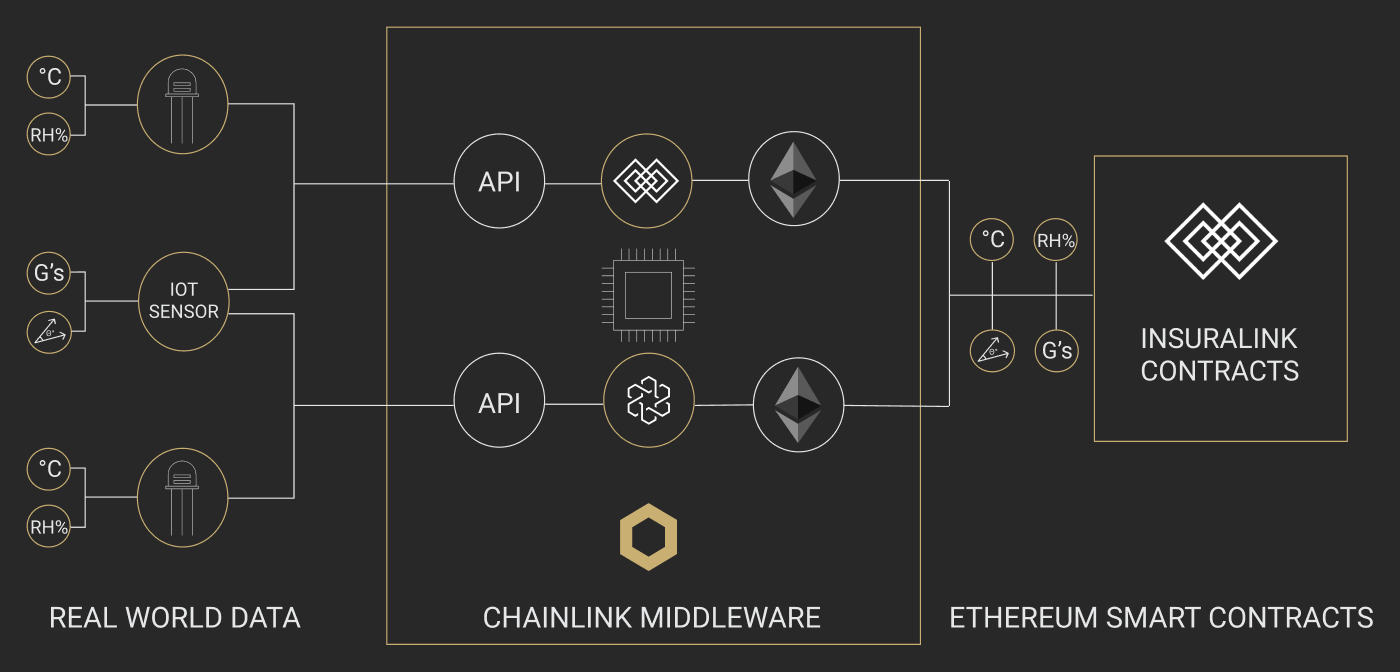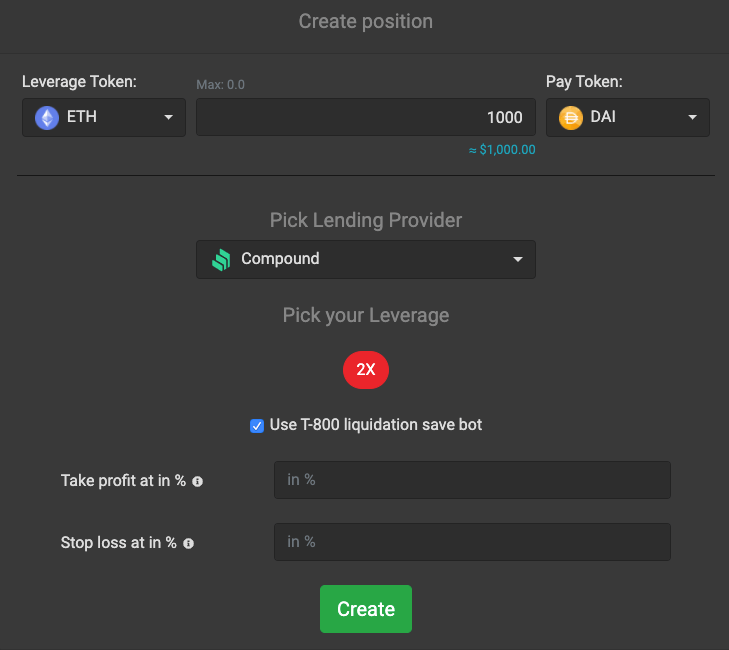Showcasing the Winning Projects from the ETHDenver 2020 Hackathon
For the second year in a row, the Chainlink team attended the ETHDenver Hackathon. The team worked around the clock supporting enthusiastic developers who wanted to interface their smart contracts with real-world data and systems using Chainlink powered decentralized oracle networks. The message of connected smart contracts is resonating; we saw some of the highest quality hackathon project submissions to date at this premier Ethereum hackathon.
At the event, we announced our ongoing work with Off-chain Labs for computing scalable solidity smart contract off-chain using Chainlink nodes, as well as our collaboration with 0x on new DEX functionalities. Sergey delivered a powerful speech about how Chainlink can help redefine the smart contract industry by moving it beyond tokens. Product Manager Johann Eid gave a talk about “Securely Connecting Smart Contracts to Off-chain Data Sources,” and Senior Partnership Manager Andrew Thurman represented on a panel discussion about layer 2 technology.
Hackathon participants had 36 hours to build the best working blockchain application possible. We awarded three bounties worth $5,000 USD to the best working smart contract applications using Chainlink. Participants demonstrated how data-driven business models can be built on top of decentralized infrastructure, featuring products for parametric insurance, multi-platform automated leverage trading, and real-time attendance tracking on-chain.
First Place: InsuraLink
Earning the prestigious grand prize of $2,500 USD was InsuraLink, a four person team consisting of Aidan Tetther, Owen Evans, Raymond Mogg, and Patrick McNab from Pier Two. As recently demonstrated with Etherisc, parametric insurance models via Chainlink oracle-enabled smart contracts have immense potential to lower the cost of claims processing and open up public participation in the supply side of insurance.
InsuraLink is a modular framework for designing data-driven insurance agreements that use Chainlink oracles to bridge IoT and smart contracts. This allows real-world data collected by IoT devices to be relayed to and trigger insurance-based smart contracts. The result is automated execution of on-chain events, such as claim payouts to policyholders, based on real-world insurable events. Chainlink oracles play two key roles:
- Initiation – IoT sensors are used to monitor environments for deviations occurring outside a defined threshold, e.g. the temperature falling below a certain point. When deviations occur, the IoT devices act as external initiators for triggering a Chainlink job. Initiators may be dependent on multiple events, such as anomalies in all three categories: temperature, humidity, and G force.
- Transportation– Chainlink nodes monitoring for log events, respond to the job with data from the specified IoT devices. Multiple Chainlink nodes are used to protect against a single point of failure. Users can also tack on additional security by initiating multiple callbacks for the same data.

The team at Pier Two stated “The coordination costs of engaging in insurance contracts are lowered when using the InsuraLink Marketplace. This allows for users in local and cross-jurisdictional networks alike to insure their peers. Risks are therefore localized, transparent, and distributed amongst incentivized network stakeholders.” The team plans to add additional features in the future, such as enabling customization options for payments, dispute functions, multi-factor authentication of data, and more.
2nd Place: 1x.ag
Coming in 2nd place winning a bounty of $1,500 USD was 1x.ag, a four person team of Sergej Kunz, Krill Kuznetcof, Nikita Kozlov, and Artem Vorobev. There’s a diverse range of DeFi Dapps entering the market for lending, leverage trading, and decentralized exchange. 1x.ag is a Dapp that enables users to build leveraged trade positions across different lending platforms from one user interface. Users can incorporate automated trading strategies for managing their positions across platforms to reduce gas fees, lower slippage costs, and simplify the user experience.
1x.ag aims to allow users to simultaneously tap into loans from Compound, Fulcrum, Aave, and MakerDAO CDP’s with Aave flash loans. Users can set stop losses to prevent liquidation and take profits when certain defined price points are hit, which are verified and automatically executed based on sourced market data from Chainlink DeFi oracles. Anyone can call the liquidation or take profit functions when it’s valid.
1x.ag leverages 1split.eth, an open-source on-chain aggregator created by 1inch.exchange, when swapping underlying collateral by splitting up token swaps amongst several different decentralized exchanges, such as Kyber, Bancor, MakerDAO/Oasis, and Uniswap. The team acknowledged that “Having defined parameters when trading is important to accurately hedge against price volatility. Chainlink oracles enable greater hedging logic to be built into the smart contract that enables our bot to accurately close positions across platforms when they deviate outside the takeProfit and stopLoss limits.”

Judge’s Choice Award: We Watch in Public Spaces
Winning the Judges Choice Award of $1,000 USD was We Watch in Public Spaces, a two man team of Iain Nash and Evan Trumbull. Large events are critical opportunities for businesses to market and network with potential customers. A considerable amount of resources go into attending these events, making choosing the right ones especially important. The problem is how do potential attendees know that the promises of event organizers – estimated attendance, booth traffic, potential rewards, etc – are actually worth their valuable resources?
We Watch in Public Spaces solves this problem of event transparency by creating a blockchain tracking system for calculating event attendance by monitoring high-traffic venue locations. A laser beam and IoT sensor track attendees at the entrance based on the number of times the beam is crossed, while a low power Bluetooth connection monitors participants throughout the space. Attendance information from the sensors is securely relayed in real-time to the blockchain using multiple Chainlink oracles. The team noted that “Chainlink simplified the dilemma of updating the data every N minutes and funding a process to achieve that.”
The end result is increased transparency of the event’s performance metrics, which can be easily verified by all parties involved. The team stated that “With this monitoring system, we can create accountability to better inform the pricing of advertisements, sponsor placement and engagement, and event ticket pricing.” This leads to new contract structures for dynamic billing based on verifiable on-chain data, and can serve as an immutable past performance basis for negotiating future contracts.
All three applications showcase how smart contracts become exponentially more powerful by securely interacting with off-chain data and systems. We are especially intrigued by how they enhanced the ability of users to interact with DeFi, as well as the seamless integration between smart contracts and the vastly expanding world of IoT.
If you’re a developer and want to connect your smart contract to existing data and infrastructure outside the underlying blockchain, reach out to us here! We can help you quickly and securely launch your data-enabled application or Chainlink Price Reference Data Contract on mainnet today.
You can also visit the developer documentation or join the technical discussion on Discord. Learn more by visiting the Chainlink website or follow us on Twitter or Reddit.
